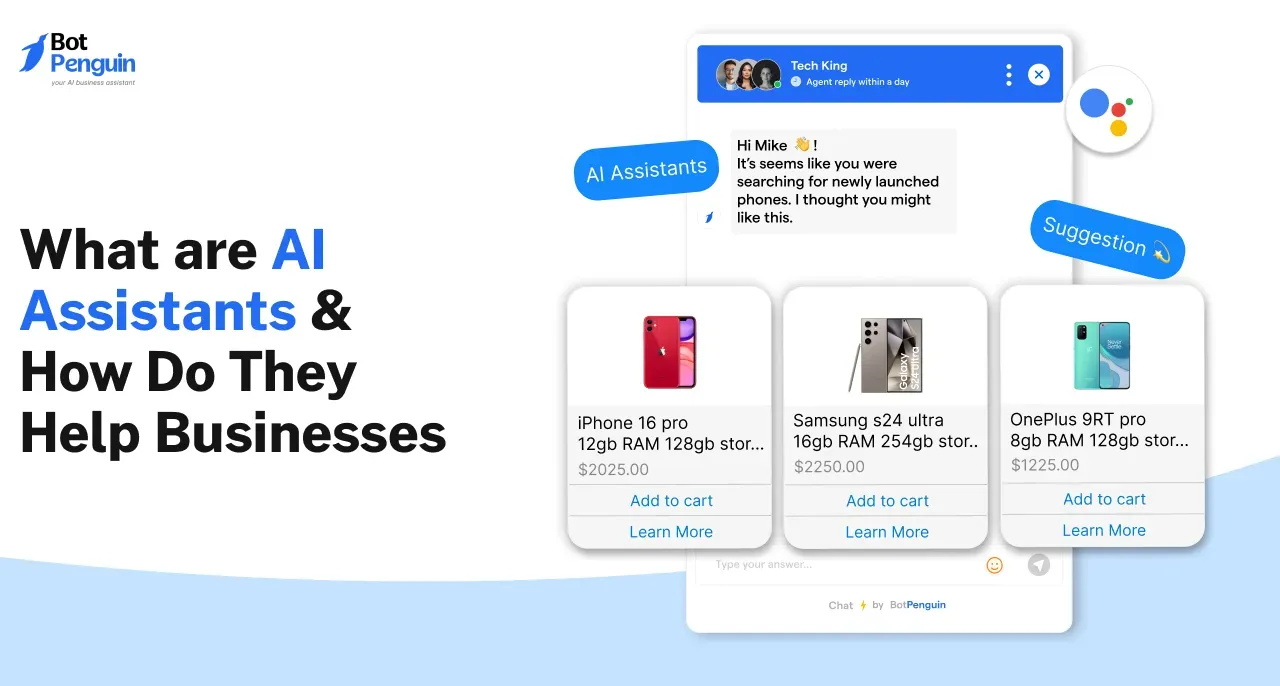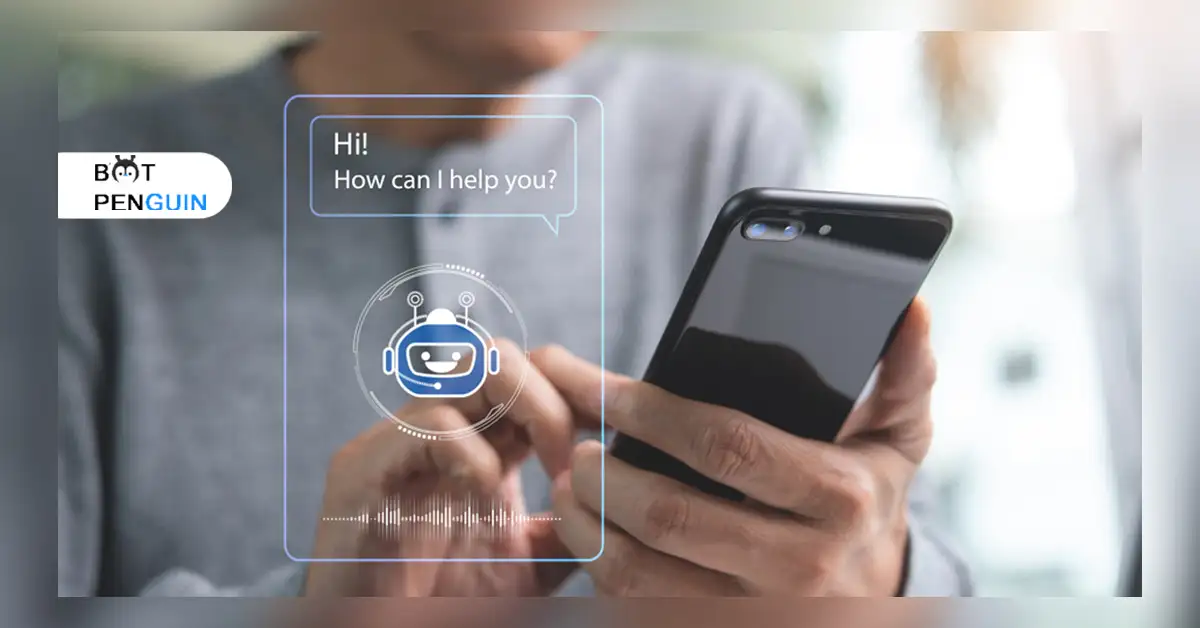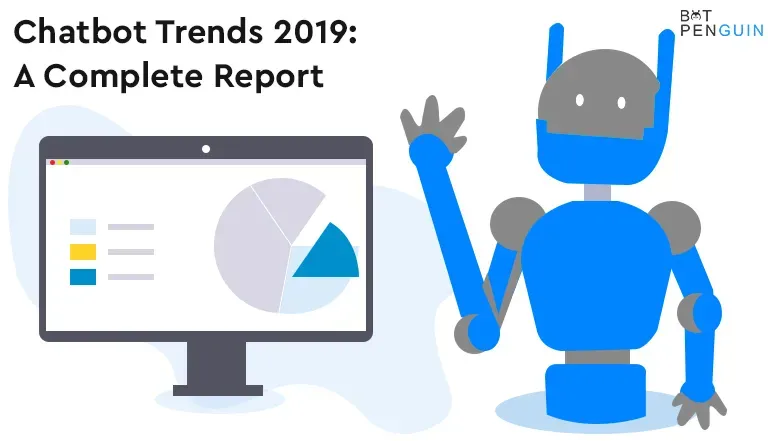A New Era with Chatbots
Chatbots are innovative bots built on AI (artificial intelligence) and have the potential to fundamentally transform "business as usual" to the point that it could spark an information technology revolution. The use of natural language in human-to-computer interactions is made possible by chatbots, also known as bots for short.
This innovation and the Conversational User Interface represent the next step in developing technological, computer-based interfaces for all operations.
Chatbots are often employed to automate essential business procedures. In addition, chatbots serve as AI-based tools that may be used to drive the generation of business intelligence, perform extensive data analysis, and carry out any other corporate data science operations.
How consumers communicate with chatbots is, however, what sets them apart from other technologies. Chatbots enable humans to command and interact with computer systems through human language.
This radical departure from all previous human-to-computer interactions makes it possible for end-user operations and engagements to be more streamlined, enhanced, and efficient. It also allows businesses to leverage AI-based intelligent systems to improve internal and external business operations and processes.
CRM for Workflow
In addition, chatbots can be utilized in an external setting to optimize the workflows connected with the acquisition of prospects or leads, the conversion of such leads into customers, and all processes involved with the retention of customers.
The method of selling the goods or services produced by an organization often consists of the collaboration of three primary departments: marketing, sales, and customer service. In addition, an organization's information technology (IT) infrastructure is often made up of various IT systems, one of which is known as the Enterprise System.
Enterprise Resource Planning, Middleware Platforms, and Customer Relationship Management are examples of these technologies.
The latter, known as CRM, is widely regarded as one of the most important computer programs that any small to medium-sized business (or even a bigger one) can implement. CRM, or customer relationship management systems, are robust technological and information technology software systems that organize, integrate, and manage all marketing, sales, and customer care activities.
A customer relationship management enterprise system is a centralized hub that manages all of a company's customer relationships.
Therefore, customer relationship management is directly connected with the marketing and sales funnel, marketing, and sales methodologies (such as inbound marketing, social media, and email campaigns.
CRM for workflows organizes, manages, and integrates all workflows related to getting and educating prospects, convincing leads that the company offers the appropriate products or services for their concerns, and closing the sale.
After a deal has been made, CRM systems can manage all customer service inquiries and store and analyze data associated with customers, including the analysis of buyer personas, the analysis of buyer patterns and needs, and the completion of other workflows related to the production of business intelligence.
Chatbots can remarkably interact with many business enterprise systems, particularly customer relationship management suites.
Their utilization of more advanced Artificial Intelligence, Machine Learning, and Deep Learning can assist any person in executing all phases of the pre-sale, sale, and post-sale workflows (marketing, sales, and customer service), which can increase the top line of any business and scale.
The Importance of Chatbots in the Management of Customer Relations
Although humans will always be necessary for the operation of a business, the development of more sophisticated computer systems has shown that robots can perform specific activities more effectively than humans.
By automating tasks and using a sophisticated conversational user interface, the addition of chatbots to a CRM for workflow system enables the system to harness intelligent AI systems, resulting in an improved customer experience.
Deep learning also enables chatbots to "learn from experience." In this era of Big Data, chatbots can utilize the massive datasets that enterprises frequently acquire to produce powerful business intelligence actionable insights, thereby assisting business executives in making the right decisions for their companies in the future.
Chatbots can be used to analyze such data to develop the most successful strategies for the future. This is becoming increasingly important for businesses as data science and analytics become more prevalent.
By integrating chatbots with CRM for workflow, AI-enabled bots can analyze customer information, buying patterns, buyer personas, customer preferences, prospects, and lead habits and preferences in a manner previously impossible for humans to achieve.
Some people may view chatbots as nothing more than simple software tools; however, with the addition of powerful artificial intelligence, chatbots have become a game-changing technology that has the potential to revolutionize all future business operations completely. This includes how businesses interact with their customers through CRM for workflow systems.
Helps Ease Congestion in Customer Service Organizations
The quality of the customer service that a company provides is one of the most critical variables in determining the churn rate as well as the customer retention rate. Businesses must avoid customer service bottlenecks to carry out customer service operations efficiently.
A bottleneck is any part of a system that leads to a backup or any factor in a business that fails and leads to a loss of income or net profits, either directly or indirectly. Bottlenecks can occur in any system.
When a company's customer service department is inefficient or does not have sufficient personnel, assistance in the form of a bot that has been intelligently engineered can help to optimize customer service workflows and remove all factors that cause bottlenecks. These factors include complex customer inquiries and timeframes associated with solving complaints or obtaining feedback.
Locate and Maintain a Record of Qualified Leads
Finding qualified leads with a reasonable possibility of becoming customers is one of the most critical marketing components connected to the top of the marketing funnel.
It is essential to conserve resources, cut overhead costs, and allot personnel just to the prospects and leads that have been qualified. Chatbots, which can learn to identify buying/lead patterns (including qualified vs. unqualified lead patterns), can be programmed to identify and track qualified leads throughout the buyer's journey while also assisting personnel in converting these leads into customers.
This allows chatbots to be customized to accomplish both of these goals. An innovative AI-based solution like this one enables a significant advancement over the lead tracking systems that are already available, hence delivering a highly positive return on investment to businesses.
How the Introduction of Chatbots is altering the Appearance of CRM for Workflow?
Getting new customers and keeping the ones you already have are two essential tasks for any business. Therefore, any tool that improves CRM for workflow and makes it possible for a company's most valuable assets (the customers) to become more involved is beneficial to the scaling and success of the firm. Chatbots are essential tools that enable customers to engage with their preferred brand in a new way.
They do this by harnessing the power of human language in conjunction with the most modern forms of artificial intelligence. The most common application of chatbots is automation, which includes marketing automation, sales workflow automation, and customer service workflow automation, as was mentioned previously.
Consequently, chatbots transform all customer interaction systems from cost centers into optimal strategies, which can raise the bottom line while simultaneously reducing overhead costs and boosting the rates at which customers are retained and acquired.
The Quality of the Relevant Data
Customer Relationship Management enterprise suites is utilized to manage all workflows associated with customer relations and store and analyze customer and prospect data. This allows marketing, customer service, and sales officers to have the critical data and information to drive future marketing and sales campaigns and acquire more qualified leads and customers.
The most critical factor in determining a company's level of success in today's data-driven environment is how well its internal data is utilized. Chatbots can effectively integrate with data science and analytics systems as well as CRM for workflow to ensure that the provided data can reveal actionable insights that are practical, timely, and relevant.
Chatbots can do this because chatbots can effectively integrate with data science and analytics systems such as Big Data, Business Intelligence.
Additionally, data leakage issues are mitigated because of the automation of workflows. Data leakage issues are typically associated with less-than-optimal sales and customer service operations.
This allows all customer data to be automatically logged into the system through the chatbot that engages with the customer or lead. Lastly, due to the automation of marketing, sales, and customer service workflows, the customer experience is improved.
Obtain Information about your Customers
Customers can converse with a chatbot in human language using a conversational user interface (UI) that takes text or voice commands. This distinguishing characteristic of chatbots gives them a competitive advantage over traditional software programs. These Chatbots typically "piggyback" on already established and influential messaging apps such as Slack, Facebook Messenger, and other connected messaging platforms.
This is because this is usually the point at which potential customers have their first interaction with a company's online business assets. With analytics, chatbot systems and chatbot analytics not only make it possible to improve the customer-to-brand communication experience significantly, but they also make it possible for marketing and sales officers to gain a more direct understanding of the buying patterns and buyer personas of prospects and leads.
This is accomplished by analyzing actual messaging and voice data stored within the CRM for workflow systems and then analyzed by the system.
Examining the actual messages of customers and leads is a more effective technique for collecting user insights. Analyzing metadata, metrics, and KPIs (Key Performance Indicators) helps gain user insights while analyzing actual messages is less successful. Executives can construct and modify workflows suitably thanks to such insights into the minds of consumers, as well as design new marketing and sales tactics for the future.
Bringing Together Marketing, Sales, and Customer Service in Synchronization
Enterprise CRM for workflow systems can also organize and integrate workflows and data for marketing, sales, and customer service. These functions are provided for the customer. When a company's marketing, sales, and customer service silos are all working in concert with one another, it is much easier and more efficient to craft marketing strategies, sales processes, and customer service operations in a manner that is tailored to each customer's or prospect's previous purchasing patterns.
This allows for a more personalized experience for both parties. The Customer Relationship Management system can become a smartly driven hub for the management, organization, and integration of all marketing, sales, and customer service workflows with the addition of an AI-smart bot. These workflows are managed by advanced AI bots that analyze customer data and produce the most pertinent, actionable insights.
Applications Valuable in the Field of Business
Increasing a company's efficiency, productivity, and operational efficacy may all be accomplished with the help of AI-powered chatbots in various ways. When integrated with corporate data analytics and enterprise systems, chatbots can potentially significantly disrupt "business as usual."
While human-to-AI interactions have come a long way, conversational user interfaces and natural language processing (NLP) allow customers to interact with their favorite businesses more naturally. This creates a more seamless and natural experience for customers.
Robust AI bots can respond to consumer inquiries far faster and, in many cases, more effectively than a human, which improves the customer experience and delivers a seamless experience.
For instance, rather than a customer searching for a frequently asked questions page on a business website, they may post a question in their desired language to a company via Facebook Messenger.
The customer may receive an answer from the company's bot in seconds, saving the customer time and effort.
Chatbots allow businesses to implement strategic differentiators and provide enterprises with the capacity to address standard problems using innovative technology. This kind of innovation can boost company productivity, cut expenses, and reduce the amount of time needed to complete projects. For example, chatbots can collect critical data associated with a prospect or lead during different phases of the buyer's journey.
This paves the way for the application of data analytics, which in turn enables the bot better to understand the needs of the customer in the future and implement a marketing and sales strategy that is more relevant to the situation.
Modern CRM for workflow can present some challenges, including requiring a significant amount of overhead for customer support.
Additionally, less robust CRM for workflow frequently cause marketing, sales, and customer service processes to move slower, harming an organization's bottom line. Utilizing automated AI bots is one potential solution to all these problems.
Adapting to the Needs of a Generation That Values Text Messages
By 2020, Gartner predicts that 85 percent of people would interact with their preferred brand without speaking with a real person but rather with a bot. The power of bots to integrate within messaging apps – such as Slack, Messenger, and Skype – enables businesses to take advantage of the large user base of popular messaging platforms to reach their end-users in an unprecedented manner. This is particularly useful because most users access messaging apps on their mobile devices.
Swift and Uncomplicated Reaction Times
As was mentioned earlier, chatbots are designed for automation. This not only enables a pre-programmed, advanced AI bot to provide prompt and seamless answers to user queries, but it also enables the bot to develop, learn, and adapt to provide superior service to customers in the future through the use of Machine Learning and Deep Learning algorithms.
It Is Possible to Integrate Bots Into Well-Known Platforms
Chatbots can be standalone bots, integrated with web systems, or integrated with already popular platforms, such as Facebook, Slack, Skype, Uber, and so on. This enables businesses to leverage popular platforms to reach a larger audience feasibly and effectively.
Allows Sales Representatives More Time to Convert Hot Leads
As mentioned earlier, using automated AI chatbots within the sales cycle can make it possible for essential sales tasks to be automated. This provides skilled sales representatives the time and tools to pursue warm leads, convert them into qualified leads, and effectively close the sale, ultimately converting the lead into a full-fledged customer.
Additionally, chatbots can be used throughout the buyer's journey for the same purpose, which is to automate important tasks. This leaves skilled personnel with the time and tools to perform critical marketing, sales, and customer service tasks, increasing the bottom line.
Utilize Bots as a Content Marketing Tool
Inbound marketing is a fundamental tactic utilized in the modern marketing strategy known as content marketing. Material marketing refers to attracting prospects and leads with valuable content. Because chatbots are truly flexible tools, they can even be integrated with content marketing systems and strategies.
They can also be designed to engage prospects online by providing them with valuable information. This can be accomplished through a conversational user interface in natural human language. This includes marketing specialists with a novel approach to engaging and reaching leads and prospects.
Your Next Step: Should You Use a Bot or Not?
A strategy plan for information technology should be used by businesses to examine whether or not chatbots can help effectively enhance their bottom line and whether or not they can operate as a cost-effective measure for improving consumer engagement.
The strategic deployment of chatbots in small and medium-sized businesses (SMEs) should be done with a goal in mind. It should be aligned with the organization's overall blueprint or business model. This applies to larger businesses as well. In the end, chatbots are the future. If a firm needs to get on board with the future of artificial intelligence, the corporation may forego significant future returns and profits.
AI and chatbots are displacing traditional customer relationship management systems.
In the same way that artificial intelligence is causing traditional tech-based business workflows to be disrupted, chatbots are causing a revolution in the enterprise world of CRM for workflow and systems.
Chatbots help mitigate the issues associated with modern CRM for workflow and give companies the unique ability to leverage advanced AI analytics systems. Traditional CRMs have been assisting businesses to engage with customers for decades to increase sales and customer retention rates.
On the other hand, chatbots help businesses engage with customers to increase sales and customer retention rates. Chatbots can learn and develop on their own, provide solutions to user questions in a seamless and timely manner, and even assist executives in developing more effective plans in the future based on business intelligence reports supplied by AI.
Conclusion
In conclusion, incorporating a CRM for workflow can significantly impact optimizing and streamlining your business operations. A CRM chatbot can reduce response times, increase efficiency, and enhance the overall customer experience by automating customer interactions and providing personalized support.
Moreover, with advanced analytics and data integration capabilities, CRM chatbots can help you gain valuable insights into customer behavior, preferences, and pain points, enabling you to make data-driven decisions and improve your marketing and sales strategies.
However, it is essential to remember that a CRM chatbot is not a one-size-fits-all solution, and the success of your implementation will depend on careful planning, monitoring, and continuous improvement. By identifying your business needs, selecting the right chatbot platform, and providing adequate training to your staff, you can ensure that your CRM chatbot delivers optimal results and enhances your overall productivity and profitability.
BotPenguin isn’t a one-size-fits-all, but one chatbot that adapts to all. BotPenguin has got it all, from integrations to automation. Plus, it comes with a free plan that can cater to anyone and everyone with options to upgrade to a better plan later.
Why wait when you can automate?



